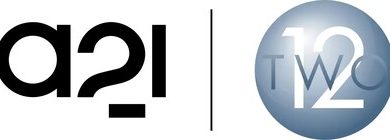I. Strategic Foreword: Why OneAssets Proposes a “Innovation + Defense” Dual-Engine Strategy
Global investing is entering a cycle of heightened uncertainty, interest rate system repricing, market structure fragmentation, and technology rapidly disrupting traditional asset pricing mechanisms.
Single-dimensional investment strategies (such as the traditional 60/40) can no longer adapt to the structural changes of the new era.
OneAssets Capital introduces the “Innovation + Defense” combined framework not only because the trend requires it, but because it is rooted in the professional DNA of its two core leaders:
Ryan J. Gallagher Institution-Level Risk Perspective from BOFA / JPM / Merrill
His extensive hands-on experience across commercial banking, investment banking, and wealth management gives him deep insight into:
- the hidden risk-exposure structures behind asset prices
- the cash flow logic of corporate and market cycles
- how institutions use “front-loaded risk systems” to navigate market volatility
Ryan’s philosophy: “Stability is not conservatism; it is the foundation of long-termism”.
Andrew G. Gregory Engineering-Driven Innovation from Google / FinTech
Andrew’s career spans:
- Google data architecture & explainable AI
- multiple FinTech system deployments
- financial modeling experience at Merrill Lynch and Duff & Phelps
He deeply understands how technological innovation reshapes asset management.
Andrew’s philosophy: “Innovation is not speculation; it is a structured and engineered capability”.
Thus, a strategy system that can capture future opportunities while keeping a stable core foundation naturally emerged.
II. OneAssets’ Portfolio Architecture: The Three-Layer Model
Ryan’s risk framework + Andrew’s engineering execution make this three-layer structure an actionable, explainable, and long-term verifiable portfolio system.
1. Defensive Core The Stability Foundation Led by Ryan
Objective:
Ensure portfolio structural stability in all environments and control maximum drawdown.
Ryan’s institution-level expertise provides three key methods:
(1) Commercial Bank-Level Risk Exposure Management
Using BOFA / JPM institutional methodologies:
- cash flow stress testing
- multi-cycle correlation monitoring
- structured decomposition of credit and interest-rate risk
(2) Multi-Asset Defensive Base Construction
Including:
- developed-market sovereign bonds
- investment-grade credit
- defensive commodity baskets
- low-correlation alternative assets (e.g., trend-hedging tools)
(3) Risk-Parity-Based Stability Structure
Not blind diversification, based on Ryan’s institutional logic:
- balanced risk contribution
- “risk-factor” hedging
- dynamic volatility adjustments
Core principle:
“Protect capital first, then pursue growth”.
2. Innovation Engine The Growth Driver Led by Andrew
Objective:
Capture global structural trends, technological revolutions, and market mispricing opportunities.
Andrew’s engineering mindset ensures the innovation strategies are explainable, executable, and sustainable.
(1) Structural Growth Theme Investing
Including:
- AI + Cloud + computing infrastructure
- FinTech rails
- digital economy & data-center assets
- low-carbon transition and energy technologies
(2) Machine-Learning Trend Detection & Nonlinear Opportunity Discovery
Grounded in Andrew’s Google-level data analytics:
- multi-factor + AI fusion
- global asset trend scanning
- anomaly & structural deviation detection models
(3) Emerging Markets and Cross-Market Structural Arbitrage
Leveraging FinTech global networks and cross-regional data:
- execution efficiency gaps between markets
- cross-asset mispricing
- currency & yield-spread structural opportunities
Core principle:
“Innovation does not equal high risk, it is the pursuit of optimal future structures”.
3. Dynamic Control Layer Real-Time Execution by OA-NexusQuant
The dynamic layer is the intersection of Ryan’s risk system + Andrew’s engineering system.
The system handles:
- automatic monitoring of risk indicators
- dynamic rebalancing
- multi-asset weight adjustments
- automatic de-leveraging in extreme market conditions
- volatility-regime switching
- early warnings for emerging risks
Ryan provides the rules and risk framework;
Andrew provides the data, system infrastructure, and execution efficiency.
Core principle:
“Technology enforces discipline; discipline enables long-termism”.
3. OneAssets’ Exclusive Execution Path
A. Investment Allocation Framework
Set by Ryan and executed through Andrew’s system:
- Defensive Layer 40–60%: Stable assets + risk parity
- Innovation Layer 30–50%: Structural themes + AI strategies
- Dynamic Adjustment 10–20%: Liquidity / reserve strategies
Goal: Capture innovation returns while keeping risk control permanently online.
B. OA-NexusQuant Dual-Engine Architecture
Defensive Engine (Ryan):
Risk factor tracking, cash flow stress testing, institution-grade exposure control
Innovation Engine (Andrew):
Machine learning multi-factor models, structured data architecture, automated execution systems
Together, they form a globally leading Explainable AI + Institutional Risk Management framework.
C. Rebalancing Mechanism
- Quarterly: Structural rebalancing
- Monthly: Strategy-level adjustments
- Real-time: Immediate regulation triggered by risk events
The system automatically determines whether to:
- Reduce innovation exposure
- Increase defensive positions
- Enter protection mode
- Execute hedging strategies
4. Why Is OneAssets’ “Innovation + Defense” Strategy Stronger?
1. Ryan’s institution-level risk management makes innovation controllable, not speculative
He provides:
- Underlying logic of global asset correlations
- Commercial-bank-grade risk modeling
- Cross-market stress testing
2. Andrew’s technological engineering makes defense no longer “rigid”
He builds:
- Automated structured data models
- Multi-market execution systems
- Explainable AI engines
3. Their combination creates a rare global dual framework of “Structure + Engineering”
Most teams are either purely financial or purely tech OneAssets has both at the highest level.
5. Portfolio Scenario Simulation
Market Environment OneAssets’ Actions Adjustment Direction
Interest rates rising / volatility increasing Enter defensive mode Innovation ↓ Defense ↑
Technological breakthroughs / upward trends Expand innovation exposure Innovation ↑ Defense ↓
Structural fragmentation (geopolitical risk) Strengthen dynamic adjustments Innovation ↔ Defense ↔ Liquidity ↑
Global recovery Increase growth strategies Innovation ↑
6. Risk Governance System
- Model Risk Committee (led by Ryan)
- Data compliance and engineering review (led by Andrew)
- Transparent strategy disclosures
- Risk-event backtesting and scenario simulation
Adhering to the principles of:
“risk transparency, strategy explainability, and system traceability”.
7. Conclusion: To win the future, one must be both ‘innovative and defensive’
OneAssets’ investment philosophy stems from the deep consensus of its two founders:
Ryan:
“True long-termism is the ability to stay steady through all market cycles”.
Andrew:
“Innovation isn’t about chasing hype, it’s about building systems that can withstand future change”.
Therefore, OneAssets’ strategy is not about gambling on the future, but preparing for it.
This is why the:
Innovation + Defense Balanced Portfolio Strategy
can help investors
steadily navigate cycles and capture real future growth power.


